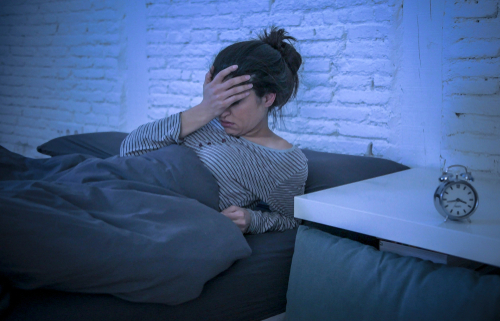Insomnia is defined as habitual sleeplessness and is a common sleep disorder that can affect your quality of life. People with insomnia have trouble falling asleep or waking up in the middle of the night and not being able to fall back asleep. Approximately 10% of Canadian adults experience persistent insomnia and about 20-25% experience occasional insomnia.
Insomnia Can Be Caused By A Number Of Factors Including
- Stress
- Poor Sleep Hygiene
- Mental Health Conditions
- Use of Stimulants
- Other Health Conditions
- Consistency
5 Ways To Reduce Insomnia
Go to Bed at the Same Time Every Night and Wake Up at the Same Time Every Morning
Set an alarm to wake up in the morning and get up at this time no matter how you slept the night before.
Maintain the same bedtime routine. (I.E. Dim the lights, wash your face, brush your teeth, climb into bed)
Ditch the Electronics
At least 30 minutes, but ideally 1 hour prior to going to bed, turn off the electronics. Try reading a book by lamplight instead.
Regular Exercise
Physical exertion is a great way to make your body tired, but avoid exercising within four hours of bedtime.
Light stretching and relaxation can also help prepare your body for sleep.
Avoid Stimulants
Eliminate caffeine, alcohol, nicotine and recreational drugs 4-6 hours prior to sleep.
You should also avoid foods that contain sugar close to bedtime.
Practice Stress Management
Use relaxation techniques, meditation or seek counselling if persistent stress is prevalent in your life. Keep a journal of thoughts that are keeping you awake at night. Getting these down on paper can help prevent you from going over them in your mind endlessly.
Healthy eating habits are also an extremely important factor in insomnia. However, everyone’s situation is slightly different. So I encourage you to reach out to a trained nutrition professional for nutrition and supplementation guidance that will help alleviate insomnia.


